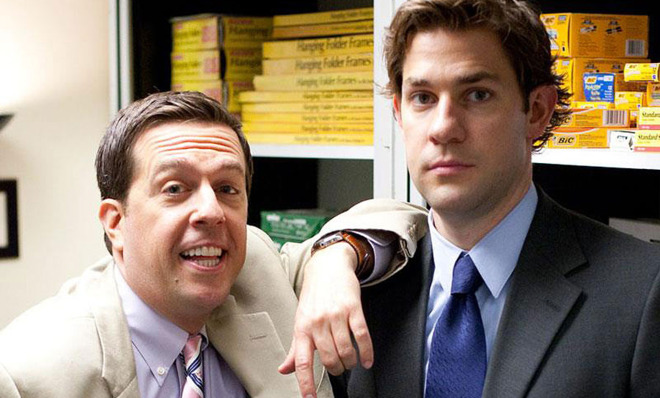Why that guy keeps reminding you he went to an Ivy League school
Yes, researchers have actually studied the phenomenon

A free daily email with the biggest news stories of the day – and the best features from TheWeek.com
You are now subscribed
Your newsletter sign-up was successful

Unlike kids at Harvard or Princeton, students at the University of Pennsylvania are in the awkward position of being Ivy League-educated but not always instantly recognized as smart. Harvard is known around the world as the pinnacle of Western intellectual life. Though University of Pennsylvania ranks alongside the other Ivies at the nation's top, its unpretentious name, for those unfamiliar with East Coast schools, sometimes conjures frat boys and cows. When Penn psychologist Paul Rozin recently asked 204 Americans to free-associate words with "Ivy League," 40 percent mentioned Harvard; less than two percent mentioned Penn.
Rozin conducted his experiment as part of a larger study, because he had a hunch that Penn's tenuous perceived connection to the Ivy League changes how its students identify themselves with the elite circle of universities. His next experiment had research assistants ask 53 students at Penn and 54 students at Harvard to write down words or phrases they associated with their schools. Sixteen Penn students wrote "Ivy." Only four Harvard students did the same.
According to Rozin, the Penn students were showing a tendency to form what he calls "asymmetrical social Mach bands." This means that because of their school's marginal status, the students felt compelled to play up their Ivy League affiliation. It's a common impulse, Rozin says: "Individuals generally prefer to be in higher-status or more positively valenced groups, both to enhance their self-esteem and to project a more impressive self to others," he writes in the study, which was published in Psychological Science in August.
The Week
Escape your echo chamber. Get the facts behind the news, plus analysis from multiple perspectives.

Sign up for The Week's Free Newsletters
From our morning news briefing to a weekly Good News Newsletter, get the best of The Week delivered directly to your inbox.
From our morning news briefing to a weekly Good News Newsletter, get the best of The Week delivered directly to your inbox.
But how far does this impulse go? While it's not surprising high-achieving Ivy Leaguers would want to be sure their credentials are known, Rozin speculates that the need to be recognized as part of a prestigious or desirable group is fundamental to anyone who just makes that group's cut. Lieutenants may brag more about their officer status than colonels do; junior varsity players may boast about their team more than varsity players; the nouveau riche may flaunt their wealth more than old money.
Rozin ran two other experiments to explore this possibility further, both of which compare how institutions market themselves. In the first, he looked at the websites of about 200 highly ranked national and regional universities, and found that the regional universities — which offer fewer graduate programs — refer to themselves as universities 15.8 percent more than the national universities do. In the second, he found that small international airports include the word "international" when writing about themselves online 36.8 more than than large (and thus better known) international hubs.
While these results are far from proof of a universal human tendency, they still hint at a less-than-flattering element of human vanity, Rozin suggests, because they underscore our deep-seated concern about impressing others. Insecurities may be good for compelling institutions to market themselves better than their competitors, sure. But the study's a reminder that you might want to refrain from telling your friends yet again that you played on your high school's freshman football team.
Pacific Standard grapples with the nation's biggest issues by illuminating why we do what we do. For more on the science of society, sign up for its weekly email update or subscribe to its bimonthly print magazine.
A free daily email with the biggest news stories of the day – and the best features from TheWeek.com
More from Pacific Standard...